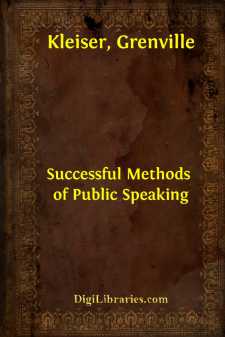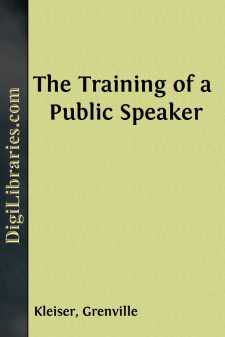Categories
- Antiques & Collectibles 13
- Architecture 36
- Art 48
- Bibles 22
- Biography & Autobiography 813
- Body, Mind & Spirit 142
- Business & Economics 28
- Children's Books 17
- Children's Fiction 14
- Computers 4
- Cooking 94
- Crafts & Hobbies 4
- Drama 346
- Education 46
- Family & Relationships 57
- Fiction 11829
- Games 19
- Gardening 17
- Health & Fitness 34
- History 1377
- House & Home 1
- Humor 147
- Juvenile Fiction 1873
- Juvenile Nonfiction 202
- Language Arts & Disciplines 88
- Law 16
- Literary Collections 686
- Literary Criticism 179
- Mathematics 13
- Medical 41
- Music 40
- Nature 179
- Non-Classifiable 1768
- Performing Arts 7
- Periodicals 1453
- Philosophy 64
- Photography 2
- Poetry 896
- Political Science 203
- Psychology 42
- Reference 154
- Religion 513
- Science 126
- Self-Help 84
- Social Science 81
- Sports & Recreation 34
- Study Aids 3
- Technology & Engineering 59
- Transportation 23
- Travel 463
- True Crime 29
Model Speeches for Practise
Categories:
Description:
Excerpt
INTRODUCTION
AIMS AND PURPOSES OF SPEAKING
It is obvious that the style of your public speaking will depend upon the specific purpose you have in view. If you have important truths which you wish to make known, or a great and definite cause to serve, you are likely to speak about it with earnestness and probably with eloquence.
If, however, your purpose in speaking is a selfish one—if your object is self-exploitation, or to serve some special interest of your own—if you regard your speaking as an irksome task, or are unduly anxious as to what your hearers will think of you and your effort—then you are almost sure to fail.
On the other hand, if you have the interests of your hearers sincerely at heart—if you really wish to render a worthy public service—if you lose all thought of self in your heartfelt desire to serve others—then you will have the most essential requirements of true and enduring oratory.
THE NECESSITY OF A DEFINITE OBJECT
It is of the highest importance for you to have in mind a clear conception of the end you wish to achieve by your speaking. This purpose should characterize all you say, so that at each step in your speech you will feel sure of making steady progress toward the desired object.
As a public speaker you assume serious responsibility. You are to influence men for weal or woe. The words you speak are like so many seeds, planted in the minds of your hearers, there to grow and multiply according to their kind. What you say may have far-reaching effects, hence the importance of careful forethought in the planning and preparation of your speeches.
The highest aim of your public speaking is not merely to instruct or entertain, but to influence the wills of men, to make men think as you think, and to persuade them to act in the manner you desire. This is a lofty aim, when supported by a good cause, and worthy of your greatest talents and efforts.
THE KEY TO SUCCESS IN SPEAKING
The key to greatness of speech is sincerity. You must yourself be so thoroughly imbued with the truth and desirability of what you are urging upon others that they will be imprest by your integrity of purpose. To have their confidence and good will is almost to win your cause.
But you must have deep and well-grounded convictions before you can hope to convince and influence other men. Duty, necessity, magnanimity, innate conviction, and sincere interest in the welfare of others,—these beget true fervor and are essential to passionate and persuasive speaking.
Lord Lytton emphasized the vital importance of earnest purpose in the speaker. Referring to speech in the British Parliament he said, "Have but fair sense and a competent knowledge of your subject, and then be thoroughly in earnest to impress your own honest conviction upon others, and no matter what your delivery, tho your gestures shock every rule in Quintilian, you will command the ear and influence the debates of the most accomplished, the most fastidious, and, take it altogether, the noblest assembly of freemen in the world."
Keep in mind that the purpose of your public speaking is not only to convince but also to persuade your hearers. It is not sufficient that they merely agree with what you say; you must persuade them also to act as you desire.
Hence you should aim to reach both their minds and hearts. Solid argument, clear method, and indisputable facts are necessary for the first purpose; vivid imagination, concrete illustration, and animated feeling are necessary for the second.
THE NEED OF A KNOWLEDGE OF HUMAN NATURE
It will be of great practical value to you to have a knowledge of the average man comprising your audience, his tastes, preferences, prejudices, and proclivities....

















